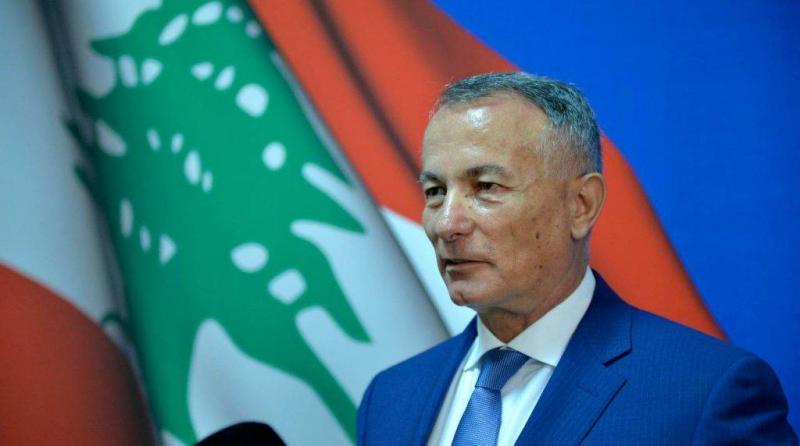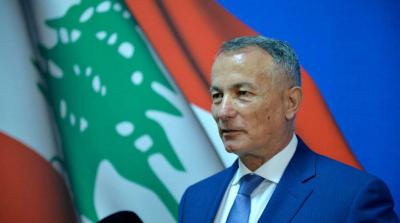In a political-security reading of the events that occurred in Tripoli, Major General Shamel Rokz stated to "Al-Joumhouria" newspaper:
“When there is this much misery, poverty, and need, it opens the door for everyone to enter the region and exploit the situation, so that anyone with a motive, whether political, security, social, or provocative, can exploit it in this area. Their words and incitements resonate with the needy and desperate people due to this miserable situation.” Therefore, Rokz believes that “this reality has been exploited, and we have witnessed in recent days in Tripoli, security violence in controlling the situation at times, and relaxation in controlling it at other times.” He considers that the responsibility for these assaults “rests on everyone; true revolutionaries are against what happened and will not destroy their city. The chaos that is occurring is what disrupts the revolution; such acts lead to negative reactions from the people of Tripoli.” Consequently, “there are doubts and questions about who is fueling this chaos and these assaults to provoke a negative reaction from the people of Tripoli towards a just revolution; there are individuals living in a dire situation who own nothing and express their anger and frustration, while others exploit that to shift the narrative and place the blame on the oppressed people who are rising and revolting.”
Regarding the parties behind these events, after confirmed positions suggesting there are political goals behind this tension, Rokz says: “Some politicians and agencies are involved in this game, just as during the battles between Jabal Mohsen and Tabbaneh in Tripoli, which lasted for years, serving the interests of politicians or presidential ambitions.”
Rokz does not absolve anyone from what happened, especially since “those who set fire to the municipal center and threw bombs are known to the security agencies, who are aware of the details about them; these are not ordinary people but professionals who know how to execute this game.” He mentions that “every circumstance and incident has its own interests and those will become apparent later.” He believes “there are politicians who have interests in creating security tension in specific areas amid the government formation process and under difficult regional conditions, to mobilize people against certain politicians to weaken their stature; there are also various security and political considerations.” He emphasizes that “staging such events in Tripoli is different from any other Lebanese area. Tripoli has a particular sensitivity, and those who started instigating such events in the city aim to give it a terrorist character, at a time when small groups are carrying out these events, against a whole population that is suffering.”
Regarding claims from officials in the “Future Movement” that President Michel Aoun's era stands behind these events in Tripoli to pressure Prime Minister-designate Saad Hariri, alongside other accusations against Hariri or his brother Bahaa Hariri regarding this tension, Rokz states: “The pressure theories are logical, but regarding the accusations, they can all carry accusations, each has enough to bear; pressures are exerted by everyone. However, one cannot attribute the people's suffering to political pressure. There is a reality that exists, which is poverty, and this problem in Tripoli cannot be downplayed.”
Rokz noted that “the state, during previous security events in Tripoli that ended between 2014 and 2015, spent hundreds of millions of dollars for the development of Tripoli.” He asks, “Where did this money go, and what was done with it? What has reached the people of Tripoli now from the enormous aid coming from abroad, whether in food supplies or field hospitals? What has the state done to relieve the people who despair of their health and go out to the streets despite the risks of the COVID virus because they are desperate?” He affirms, “It is not strange for Tripoli to revolt, but it is strange that all of Lebanon does not revolt, after they turned Lebanon into the hospital of the East and its university, a country from which minds, healthcare capacities, and scientific abilities flee, and from which youth emigrate.” He questions, “What are they doing other than pressuring for government formation, each according to their criteria? Is there no national standard for forming a government at a minimum, but only factional criteria?”
Regarding his opinion on Hariri's accusation that the Lebanese army stood idly by while the Serail, municipality, and facilities in Tripoli were burned, Rokz asserts: “There is a shortcoming from the agencies; the attacking groups should not have been able to enter the Serail or the municipal center, as they are small groups, and it was possible to prevent them, especially since there is a significant presence of military and security forces in Tripoli. There is a mix of responsibility between the environment and security responsibility. There was a security failure in Tripoli during these events; there were not massive numbers of demonstrators in the street.”
As for the delay in forming the government, Rokz says: “Despite the control of the leaders in Lebanon, they are weaker and more incapacitated to make even a small decision about forming the government, regardless of who they are and their ranks; the issue is beyond their control, and they are just cards on a table. When the time comes to discuss these cards, the government will be formed in 24 hours; and this maybe will be at the table of American-Iranian negotiations that have not started yet.” He believes “it is wrong to think that the factors are limited to Aoun and Hariri.” He asks, “Why did the ‘Shiite duo’ insist on the Ministry of Finance and only accept to name the Shiite ministers?” He adds: “So that the other parties can use that as a pretext and demand to name ministers themselves, leading them all to this moment.” He emphasizes that “the decision is not in anyone's hands, not even the ‘Shiite duo,’ but it is abroad.”
Regarding the Lebanese revolution, Rokz states: “Those who bet that as poverty increases, the revolution will intensify are mistaken. Poverty does not create a revolution; awareness does. Our work now focuses on raising awareness among people about their rights, interests, and future, and we continue with the true, clean revolution, away from being beholden to external agendas.”




